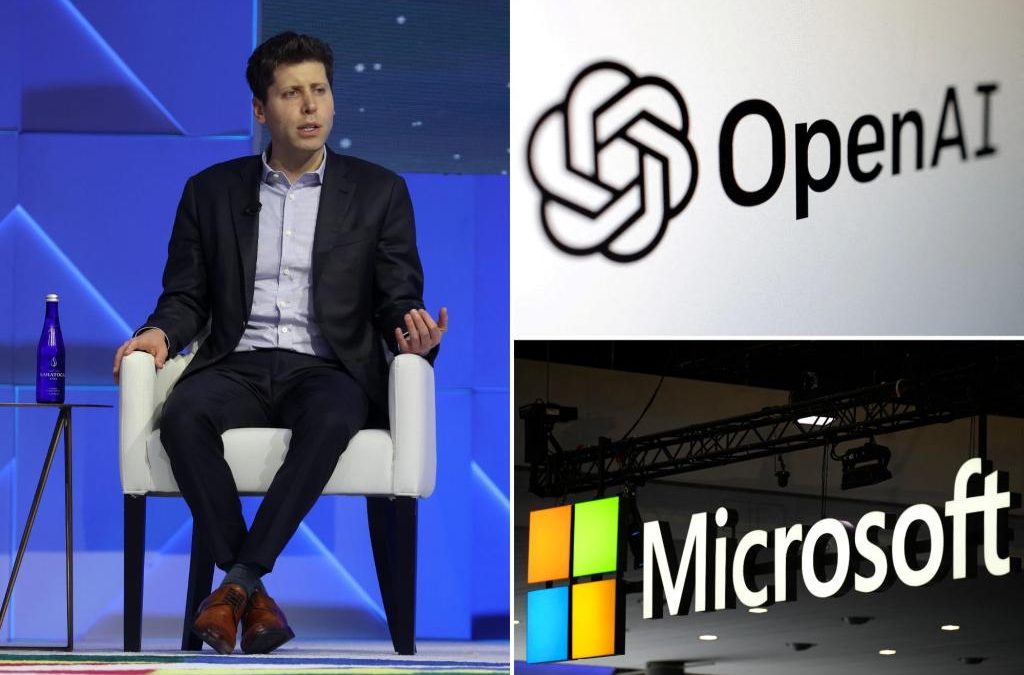The Federal Trade Commission is weighing whether Microsoft’s investment in OpenAI violates antitrust laws, Bloomberg News reported on Friday, citing a person familiar with the matter.
The move comes after Britain’s antitrust regulator also said Friday it will review whether to launch a merger probe of Microsoft’s multi-billion dollar partnership with the ChatGPT, weighing in on the US software giant’s tie-ups for a second time this year.
The decisions by the regulators on both sides of the pond follows last month’s announcement that Microsoft, which has committed to invest over $10 billion into OpenAI, will take a non-voting position on the board.
That followed a tumultuous boardroom battle which saw the sudden ouster and return of OpenAI CEO and founder Sam Altman.
“There have recently been a number of developments in the governance of OpenAI, some of which involved Microsoft,” the Competition and Markets Authority said Friday.
Consequently, its review will consider whether the OpenAI tie-up has resulted in a merger situation, and if it could hurt UK competition, the CMA said.
Microsoft owns 49% of the for-profit operating company, according to sources familiar with the matter. OpenAI has a non-profit parent which owns 2%, those sources said.
The speed at which the use of AI technology is growing is unrivaled in economic history, while advances in powerful foundation models, such as the one underpinning ChatGPT mean that this is a pivotal moment in the development of this transformative technology, the CMA said.
“The only thing that has changed is that Microsoft will now have a non-voting observer on OpenAI’s board, which is very different from an acquisition such as Google’s purchase of DeepMind in the UK,” said Microsoft vice-chair and president Brad Smith in a statement, taking a swipe at its main rival.
He said the company will work closely with the CMA. OpenAI did not immediately respond to a request for comment.
The companies and the FTC didn’t repsond to request for comment on the Bloomberg report.
The observer position means Microsoft’s representative can attend OpenAI’s board meetings and access confidential information, but it does not have voting rights on matters including electing or choosing directors.
Move quickly
Max von Thun, Europe director at Open Markets Institute, a non-profit organization focused on strengthening antitrust law, said other regulators could follow the CMA given the growing concentration in AI.
“It is essential that antitrust authorities move quickly to investigate these deals, including unwinding them if necessary, to preserve competition and prevent this critical emerging technology from being monopolized.
European Union antitrust regulators said they have been following “very closely the situation of control” at OpenAI, including recent management changes as well as Microsoft’s investment in the company and its role on the AI firm’s board.
The Federal Trade Commission declined to comment. Bloomberg reported the FTC is also investigating.
A range of transactions and arrangements may constitute a relevant merger situation, including, for example, the acquisition of a minority shareholding or, in some circumstances, commercial arrangements such as outsourcing arrangements, the CMA said.
The CMA will review whether the partnership has resulted in an acquisition of control. That refers to one party having material influence, de facto control or more than 50% of the voting rights over another entity or change in the nature of control by one entity over another.
The CMA will need to find evidence that the recent fall-out from the Altman affair has led to material changes in the governance of Open AI and Microsoft’s influence over its affairs, said Alex Haffner, competition lawyer and partner at Fladgate.
Even if it doesn’t pursue a full probe, the preliminary investigation will better inform the CMA’s broader oversight of the fast-developing AI sector, he said.
On Friday, the CMA kickstarted its review with an invitation to interested parties like Google to comment by Jan. 3 2024.
The regulator, which has made global headlines with a combative approach since Britain’s departure from the European Union, blocked Microsoft’s $69 billion acquisition of Activision Blizzard, the “Call of Duty” video game maker, earlier in the year to the fury of the two US companies.
It later changed its mind after Microsoft amended its acquisition plan.
Source




